Interview
Imperial Echoes And Working-Class Voices - In Conversation With Harsev Bains
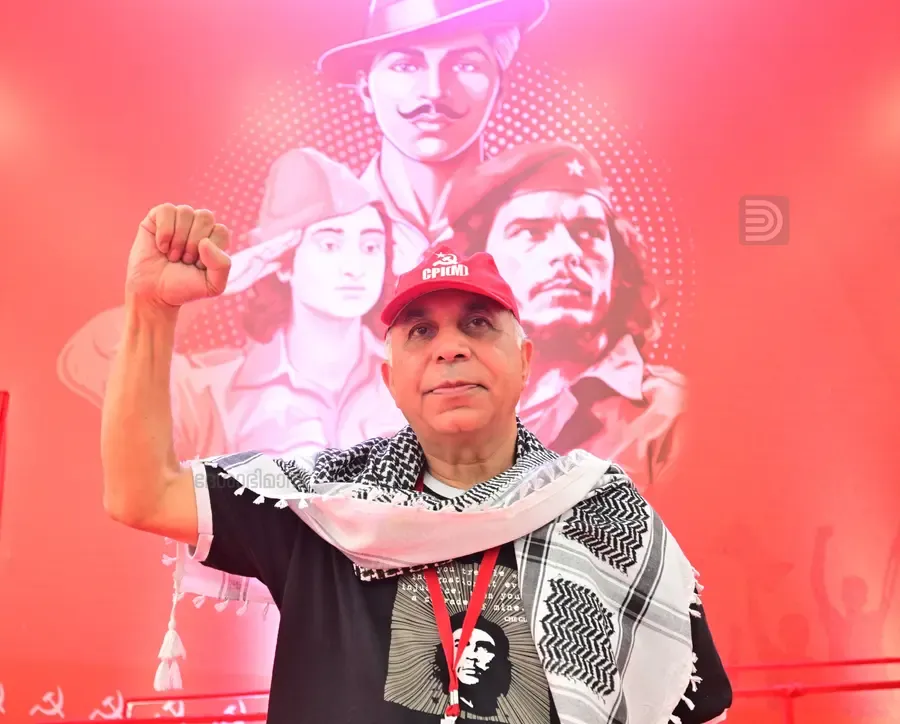
Anusha Paul
Published on Apr 04, 2025, 09:34 PM | 12 min read
Deshabhimani is in conversation with Harsev Bains, former General Secretary of the Association of Indian Communists (AIC) and current President of the Indian Workers Association (IWA).
Bains has been based in Britain since the mid-1960s, having migrated there at the age of 10. He joined the trade union movement at the age of 16 in 1972 and has served in various leadership roles within the IWA, including Branch Secretary, National Youth Officer, National General Secretary, National Vice President, and currently as National President.
With decades of experience in organizing Indian workers, leading anti-imperialist struggles and communist movements in Britain, Bains has been an active member of the AIC since 1975, joining during the declaration of Emergency in India. As a delegate to the 24th CPI(M) Party Congress, he discusses the AIC’s global solidarity efforts, the rise of youth movements, and working-class struggles in Britain.
CPIM was founded on the principles of internationalism during its 7th Party Congress, and today, as we witness the 24th Party Congress, how is the Association of Indian Communists (AIC), strengthening its ties with global anti-imperialist movements—especially in regions like Latin America and Africa, where revolutionary struggles are gaining momentum?
We come from the land of British imperialism, and it is absolutely essential for us to build our anti-imperialist struggles and to strengthen it. The Association of Indian Communists (AIC) was founded by Basava Punnaiah and Harkishan Singh Surjeet in 1966 after engaging in discussions with Indian comrades. It was officially established in 1967 with the same vision: to build a working-class, anti-imperialist movement in the heart of the British Empire.
In the 1980s Suneet Chopra came to Britain and said, “Comrade, we must build an anti-imperialist center.” And the party also asked, “are we capable of doing that?”
That time we were a young small AIC group and starting our political work, something that is equivalent of Democratic Youth Federation of India (DYFI) at that time. Suneet Chopra, he asked us one question, "If we don’t do it, who else is going to do it?"
Since then, we have developed links and have been critical in fostering connections for the party with anti-imperialist movements from all around the world. Many such movements passed through our network, including with Palestine, where Yasser Arafat would often
engage with us. We played a key role in the anti-apartheid movement—being the driving forces behind it. In fact, the first thing Nelson Mandela did after his release, he held a meeting with the anti-apartheid movement in Britain. He invited us to that breakfast meeting, thanking us for keeping the struggle alive.
Our solidarity efforts continue with Venezuela, with Cuba, I serve as the Executive Member of the Cuba Solidarity Campaign. We are the most powerful solidarity movements outside Venezuela. Venezuela is the first one, right next to Cuba. And now we also support the Venezuela Solidarity Campaign and are equal members of the Palestine Solidarity Campaign—both powerful movements.
It’s not by coincidence that we organize one of the best Latin American conferences. We do this annually, a couple of days back we organised one where Aleida Guevara and Vijay Prashad came to speak. The key organizers were mostly our SFI comrades, whose enthusiasm left a lasting impact. Alida Guevara, along with representatives from Nicaragua, Venezuela, Brazil, and other countries, was deeply impressed by our work.
We have built these vital links over the years. Since October 2023, we have held at least 25 national demonstrations, with 22 of them attended personally by me, alongside members of the Indian Workers’ Association (IWA) , a mass organisation of AIC which was born much before the AIC. IWA 1938 was a movement for India’s freedom, led by a group of Punjabis. They did not label it as a Punjabi movement; it was Indian—focused on workers at the heart of the organization.
We have been fortunate to receive guidance and support from prominent leaders like Comrades Har Kishan Singh Surjit, Jyoti Basu, Brinda Karat, Mariam Dhawale, M.A. Baby, Prakash Karat, and Sitaram Yechury, among others. Over the years, we have been privileged to have the backing of many leaders, including Mohammad Saleem and Ashok Dhawale. It’s truly wonderful to receive their support. We will continue to play our role, building anti-imperialist movements as much as we can in a very humble way, just that party needs to use us!
How does the AIC analyze the role of British imperialism in sustaining neo-colonial dynamics in countries like India?
British colonialism has never truly left their hearts. They have never let go of that imperial mindset. Even today, many in the British establishment see themselves as part of an empire. Look at the people around Boris Johnson during his tenure as Prime Minister—figures like Jacob Rees-Mogg, who openly romanticized the empire.
The Brexit vote was not about America, new trade deals, or leaving the European Union. It was about redefining Britain’s identity as a global power, as an empire. Colonialism doesn’t
just disappear. Take the United Kingdom, for example. I have an issue with the term "UK." I tell people not to use it because it’s a colonial term—it signifies the rule over different territories, including Northern Ireland, which is still under British occupation. They have used religion to divide, planting their own people there to maintain control. This is a tactic they have used elsewhere too, like in Kashmir. Move one group out, bring your own in, and create the illusion of a conflict.
Ireland today is arguably the longest-colonized, occupied country in the world, under British control. This colonial “legacy” continues through neo-colonialism, manifesting in political and economic influence rather than outright occupation.
In Britain, our organization demands two fundamental things:
1. A formal apology for the Jallianwala Bagh massacre on April 13, 1919. We have been asking for a clear, unequivocal apology from a serving Prime Minister in the House. They have done everything except that—offering sympathy statements and writing it in visitor books, but that’s not enough. The Indian people deserve more than hollow words. What we need is an apology!
2. The exclusion of British colonial history as a core part of the national curriculum—from schools to universities, and even in workplaces. Right now, they are teaching their version of history, what is being taught is often a sanitized version that paints Britain in a positive light. They focus on things like the railways, claiming they were built for India’s benefi t, but we all know that railways were designed to exploit us more efficiently, to drain our resources faster for Britain’s gain.
Even within Britain, there is systemic racism. For example, Indians were not allowed to become train drivers. They thought we were incapable, today, we are operating those very same trains. The colonial mindset didn’t just vanish; it evolved for cheap labour.
Just recently, we held a conference in the House of Commons on April 1st. Jeremy Corbyn, then Leader of the Opposition, apologized in the House for colonial atrocities. We wanted the same words from Prime Minister Theresa May, but they did not do it. Although Corbyn’s apology was included in the Labour manifesto, Keir Starmer later removed it, showing how right-wing the current Labour leadership has become.
Let us not forget the role of Tony Blair and Gordon Brown. Under their leadership, Britain’s foreign policy was deeply entangled with imperialistic motives. Blair’s alignment with George Bush during the Iraq War was a stark example—claiming that Iraq was a threat because it supposedly had weapons of mass destruction, a claim that was completely false. They waged a war, driven by imperial ambitions masked as security concerns.
They are obsessed with military spending, now they are hyping threats from Russia, China and the global south. It is all about boosting the arms industry. They claim there is no money for public services but suddenly find billions for defense budgets. This is the same government that slashed winter fuel allowances for pensioners and increased fees for international students, all while justifying military expenditures.
This is the reality we face. The so-called legacy of colonialism isn’t just history—it’s ongoing, shaped by the same imperialist ideologies, now masked under the guise of modern geopolitics and neo-liberal policies.
How do you assess the current state of the working class in the UK, especially with the rise of precarious employment and gig economy exploitation? How does the Indian Workers Association address the contradictions within the diaspora, where some sections benefit from imperialism while others face systemic oppression?
We have people who, because they are educated, somehow believe they are not part of the working class. I have often wrestled with this contradiction, especially when moving through different environments where people are accustomed to identifying as professionals.
They want to separate these identities—I’m a professional, as if that’s distinct from being a worker. I have been a professional myself. I worked for 40 years as an aircraft engineer for British Airways and retired as a senior manager at British Airways, where I was responsible for long-haul operations at Terminal 4 at Heathrow. I often tell people that I was in charge of a billion-pound business. Despite that, I have always thought of myself as a worker. Why? Because I don’t control the means of production, and I’m not extracting surplus value from someone else’s labour. That’s the essence of what it means to be a worker. It’s high time we stopped this silly notion of being professional. Let’s get to the point: do you control the means of production yourself?
We need to talk honestly about the working class and socialism. None of this reformist nonsense—“Oh, let’s tweak this, let’s tweak that.” We have to bring socialism back to the forefront. As it says in our Congress, “Socialism is the alternative.” There are no ifs and buts about it.
The working class has to recognize itself for what it truly is. Don’t let that identity be diluted. Be proud of who you are. I’m a very proud proletarian. I’m a very proud worker. I’m a very proud trade unionist.
The current state of the working class in the UK, marked by precarious employment and gig economy exploitation, demands a clear, unfiltered recognition of what it means to be a worker. The IWA challenges the false dichotomy between “professionals” and “workers,” emphasizing that true class identity lies in the lack of control over the means of production. It’s time to embrace socialism not as a distant ideal but as the concrete alternative, grounded in the pride and solidarity of the proletariat.
How would you describe the current political situation in Britain, particularly in light of the rising costs of education and the growth of fake universities? How is the student and youth movement evolving, and do their struggles contribute to the momentum of the party?
Students contribute £49.2 billion to the British economy—not just through their tuition fees but also via housing, food, travel, and even the work they do. This adds surplus value.
However, there is a massive challenge that students face. Many come from very poor backgrounds from all over the country, not just from one region. Their families often make significant sacrifices, sometimes borrowing money to support their education. They arrive in the UK with hopes of studying and, in many cases, working as well. But instead of being welcomed, they encounter numerous obstacles.
Some universities are effectively non-existent, operating out of places like restaurants, and there are fake agents who exploit these students, not just for educational purposes but also for jobs in sectors like social care. This exploitation extends to the housing market—rents are soaring, while employment opportunities are shrinking. For someone to stay in the UK after their studies, they need to earn at least £38,700 per year, plus additional costs for the employer. Few can afford to offer jobs at that rate, making it nearly impossible for new graduates to stay.
The rise of fake universities has created a vicious cycle, producing cheap labour for Britain. Despite these challenges, we have seen student and youth movements gaining momentum, particularly among Indian students in Britain, who have been vocal in demanding their rights.
This situation has had a significant impact on our party. The influx of young people into our ranks has been transformative. About six years ago, we were considering an exit strategy, but thanks to the energy and activism of the youth, our party has grown exponentially. They have brought fresh ideas, new members, and have energized our movement not just within the party but across Britain.
Wherever they show up—whether at a flag march at Karl Marx’s grave in Highgate Cemetery, protests outside universities, or recent events at Oxford—they demonstrate courage, bravery, and a deep understanding of the struggle. Their presence has been invaluable, and we owe them a debt of gratitude.
There is a rise of student and youth movements in Britain, fueled by the struggles against rising education costs, fake universities, and economic exploitation, has not only highlighted systemic issues but also revitalized political activism. The energy and courage of young activists have been crucial in transforming our party, proving that the fight for justice is always carried forward by those who refuse to be silenced.



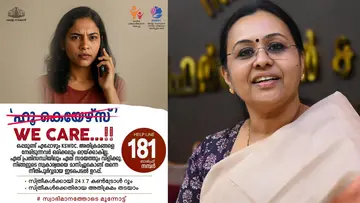
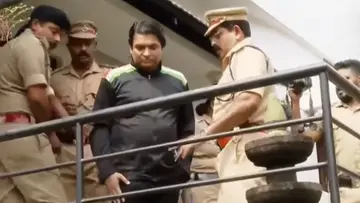
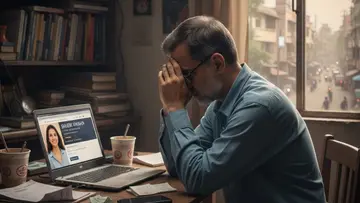
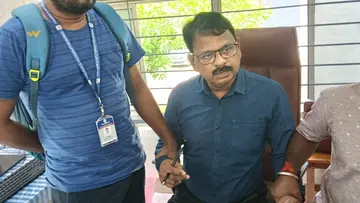
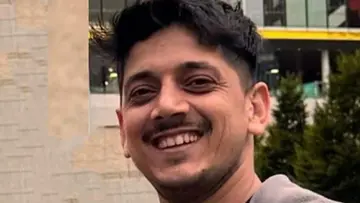
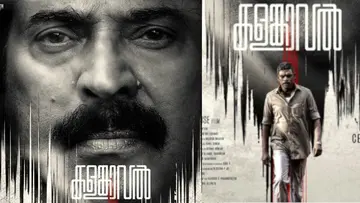

0 comments